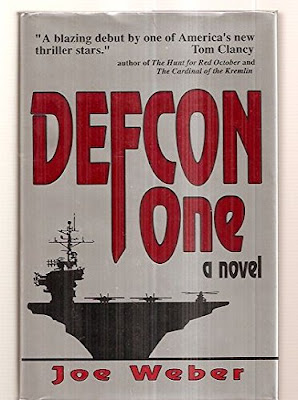Book Review: 'DEFCON One'

First hardcover edition. © 1989 Presidio Press On August 1, 1989. Novato, California-based Presidio Press (now owned by Ballantine Books) published Joe Weber's DEFCON One, a techno-thriller that imagined what would happen if Soviet hardliners "disposed of" then-General Secretary of the Communist Party of the Soviet Union (CPSU) Mikhail Gorbachev and reversed his liberalization policies of glasnost (openness) and perestroika (restructuring). Judging from the novel's title (a reference to the Pentagon's Defense Readiness Conditions - DEFCONs - highest level) and the stark silhouette of a U.S. Navy carrier on the dust jacket art, such a development in the Soviet Union's internal affairs is not going to be a pleasant one. Weber, a retired Marine Corps aviator and - before becoming a full-time author - corporate jet captain based in Colorado, had no illusions about the CPSU, its conservative (in Soviet terms) "old guard," or the notion that a mor...


